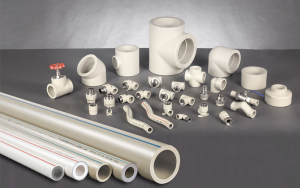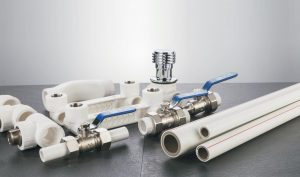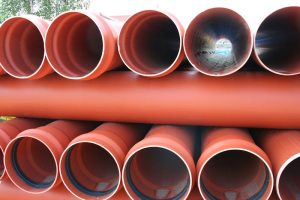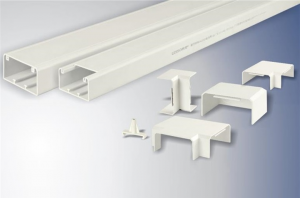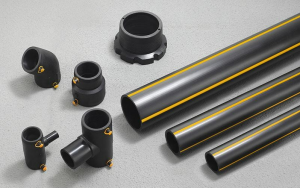Table of Contents
The underground water supply system is an important component of modern infrastructure, responsible for transporting water resources to residential, commercial, and industrial areas to meet people’s living and production needs.
Due to the long-term effects of soil pressure and corrosion on groundwater supply pipelines, their design and material selection are crucial for ensuring water supply safety.
Understanding and selecting suitable underground water pipe materials is of great significance for ensuring the reliable operation of the water supply system. This article will discuss the considerations for underground plumbing selection and analyze which pipe material is suitable for underground water.
What are the Requirements for Underground Water Pipes?
When it comes to choosing underground water pipes, it’s crucial to consider the following requirements:
1. Durability and Reliability
The most important requirement of an underground water pipe is that it is durable and reliable.
- Corrosion resistance: The underground water pipe must be able to resist the corrosion of chemicals, microorganisms, and groundwater in the soil to prevent material degradation and water pollution.
- Leak prevention: Pipes and fittings should have good sealing performance to prevent water leakage, reducing water resource waste and avoiding pollution of surrounding soil and groundwater.
- Stability at different temperatures: Pipe materials should maintain stability to avoid cracking or deformation caused by temperature changes.
- Load-bearing capacity: Pipes and fittings must have sufficient strength to withstand internal water pressure and external soil pressure, ensuring long-term safe operation.
2. Hygiene and Environmental Protection
Underground plumbing has become a very important part of supporting our daily lives and production. Therefore, pipe materials should meet hygiene standards and not release harmful substances into the water during long-term use, ensuring the hygiene and safety of the water supply.
Besides its impact on humans, the water supply lines should also be environmentally friendly. They should preferably be made of recyclable material that causes minimum damage to their surroundings. The inner wall of a water pipe for underground use should be smooth and not prone to the growth of microorganisms to maintain water quality.
3. Economy and Construction Convenience
When deciding on an underground water pipe, considering economy and construction convenience is a must. This means that the material you use should be cost-effective but also of good quality. Long-lifetime pipe materials can reduce replacement frequency, thereby lowering overall costs.
It’s also a good idea to choose underground water pipes that are easy to install and access later, such as lightweight PE water pipes. This way, workers can conveniently make repairs or replace certain parts.
4. High Flow Capacity
Choosing underground water pipes with high flow capacity can improve transportation efficiency and meet large-scale water supply needs. In addition, such pipes can also reduce the risk of blockage.
How to choose water supply lines? Firstly, the inner diameter of the pipe should be large enough to ensure sufficient water supply. The pipes’ inner walls should be smooth to reduce water flow resistance and improve water delivery efficiency.
What’s the Best Pipe for Underground Water Lines?
Now, we’ve discussed the requirements for an underground water pipe. The following is a brief analysis of several commonly used pipeline materials:
1. Metal Pipes
- Copper Pipe: Copper water pipe for underground is anti-corrosive, recyclable, and stable in high temperatures. However, it can cost quite a lot.
- Steel Pipe: Steel pipes have high strength but are hard to install. They require special tools to weld and are very difficult to transport. They may be prone to rusting and require anti-corrosion treatment.
- Galvanized Steel Pipe: This material used to be a popular choice for an underground water pipe. However, after long-term use, the zinc layer is prone to corrosion, and harmful substances can enter the water supply system and harm human health.
2. Non-Metallic Pipelines
Some popular non-metallic pipeline options that perform better than metal ones include:
- Polyvinyl Chloride Pipe (PVC Pipe): PVC water pipe is one of the most common plastic pipes, widely used in underground water supply systems due to its low cost, easy installation, and strong corrosion resistance. PVC pipes have good chemical stability and will not rust or pollute water quality. It is lightweight, easy to transport, and has a relatively low cost.
- High-density Polyethylene Pipe (HDPE Pipe): HDPE pipes have excellent impact resistance, heat resistance, wear resistance, and corrosion resistance. It’s flexible and can be installed over long distances without using joints, reducing the risk of leakage. HDPE pipes are widely used in drinking water, drainage, industry, and electrical industries, especially in high-pressure water supply systems, making them an ideal material for water supply pipes.


Order the Best Pipe for Underground Water Lines
LESSO understands the high requirements for durability, reliability, hygiene, environmental protection, high flow capacity, economy, and construction convenience of water pipes underground. We provide high-quality and reliable PVC and HDPE pipes for municipal water supply, household water use, and other purposes, suitable for various installation environments.
- Non-toxic and excellent chemical resistance.
- Smooth inner wall with high flow capacity.
- Lightweight, easy to install and maintain.
- Long service life for more than 50 years under proper use.
- Non-toxic, pollution-free, recyclable, and reusable.
- Good chemical stability, aging resistance, and resistance to stress cracking.
- Easy to install and almost maintenance-free.
- In addition to underground water supply, it can also be used for municipal sewage, irrigation, and industrial waste discharge.
Conclusion
Choosing the right underground water pipe can be difficult. You have to consider factors like durability and “what is the safest water piping material?”
LESSO PVC and HDPE pipes are easy to install, cost-friendly, and completely recyclable. Once installed, you can say goodbye to frequent replacements and repairs because these can last up to 50 years. Contact us now to learn more information!




